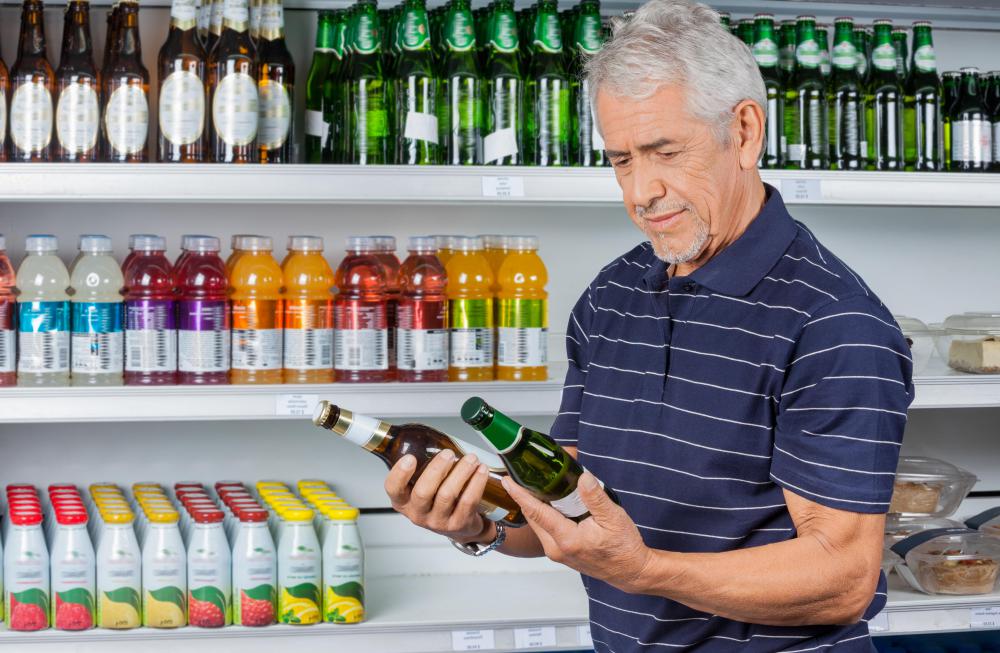At WiseGEEK, we're committed to delivering accurate, trustworthy information. Our expert-authored content is rigorously fact-checked and sourced from credible authorities. Discover how we uphold the highest standards in providing you with reliable knowledge.
What is Brand Loyalty?
“Brand loyalty” is a term used to describe the tendency that consumers have to stick with the products or services bearing brand names they know and trust. Brand loyalty translates to repeat sales, so it’s in the best interest of the company that carries the brand to maintain its reputation and recognizability in order to maintain profit. Altering the look and feel of a brand can have disastrous consequences for a company, as it runs the risk of alienating brand-loyal consumers who may not recognize or trust the product or service under different packaging.
In addition to the greater security offered by trusted brand names, many consumers simply don’t want the hassle of trying out different products or services once they’ve found one they’re comfortable with. Purchasing different products and services can result in wasted time if the product or service is unsatisfactory to the consumer, not to mention wasted money if the product or service is non-refundable.

While products and services with established brands are usually priced higher than generic products and services, most consumers feel a greater sense of security with brand names for a number of reasons. As well-known brands depend on their reputation to foster good business, it’s in their best interest to actively work toward resolving any consumer disputes that may arise. This gives consumers a sense of security in knowing that they are less likely to be taken advantage of, and acts as a type of informal insurance. Big brands work more actively toward mitigating any damage that may result from customer dissatisfaction, as consumer complaints directed at big brand names automatically generate instant and wide-spread interest in the media.

One of the most memorable examples of the ramifications that can happen when a company dismisses brand loyalty occurred in 1985, when The Coca-Cola Company launched “New Coke.” A reformulation of the company’s eponymous soft drink, Coca-Cola, “New Coke” was launched in the market to replace Coca-Cola after several focus groups gave it mostly positive reviews. Amidst disappointing sales and a backlash from consumers, which included public protests in the streets of certain States, The Coca-Cola Company withdrew New Coke from the shelves and reissued their original soft drink under the new brand, “Coca-Cola Classic.” The Coca-Cola Company then directed their marketing efforts toward assuaging consumers by running a campaign with the slogan “Red White and You,” in an effort to reflect the brand loyalty and national pride felt by consumers toward their product.
AS FEATURED ON:
AS FEATURED ON:














Discussion Comments
Moldova- That is so true. Because my husband travels so much we never have to pay for our hotel stays during our vacations because he usually has a lot of accumulated points that he can use.
I also want to add that the airlines also offer brand loyalty programs. In addition to the frequent flyer miles, the airlines expand brand loyalty through unique perks that they reserve for their best customers.
For example, American Airlines offers the Admirals Club which is an upscale resting area in the airport for business travelers that are waiting for their flight.
They offer a shower area along with complete internet connectivity stations and complimentary drinks and snacks. The membership categories range from Gold to Executive Platinum.
The fees to join this prestigious club are based on the traveler's frequent flyer miles history. These programs really create a sense of brand loyalty during the recession because everyone is looking for additional value.
GreenWeaver - I agree. I also feel that brand loyalty programs like the Honors or the Starwood Hotel Guest Programs develop a strong brand loyalty among business travelers.
Having the ability to accumulate hotel points that eventually lead to complimentary stays encourages customers to seek out these properties when booking a hotel.
Many business travelers use the accumulated free nights to supplement a personal vacation. This is why these programs are so effective because they offer the consumer the luxury of a potential free vacation.
A brand loyalty survey lets the company know how likely a customer is to continue to purchase the product or service.
Many market research firms develop these surveys as well as provide a database marketing system that allows you to continually market to your best customers.
Creating brand loyalty offers a business the highest degree of potential success because this segment of the customer base is the most profitable.
It is a well established fact that about 80% of your revenue is derived by only 20% of your customers. This is why strong brand loyalty establishes higher market share and increased profits.
Post your comments